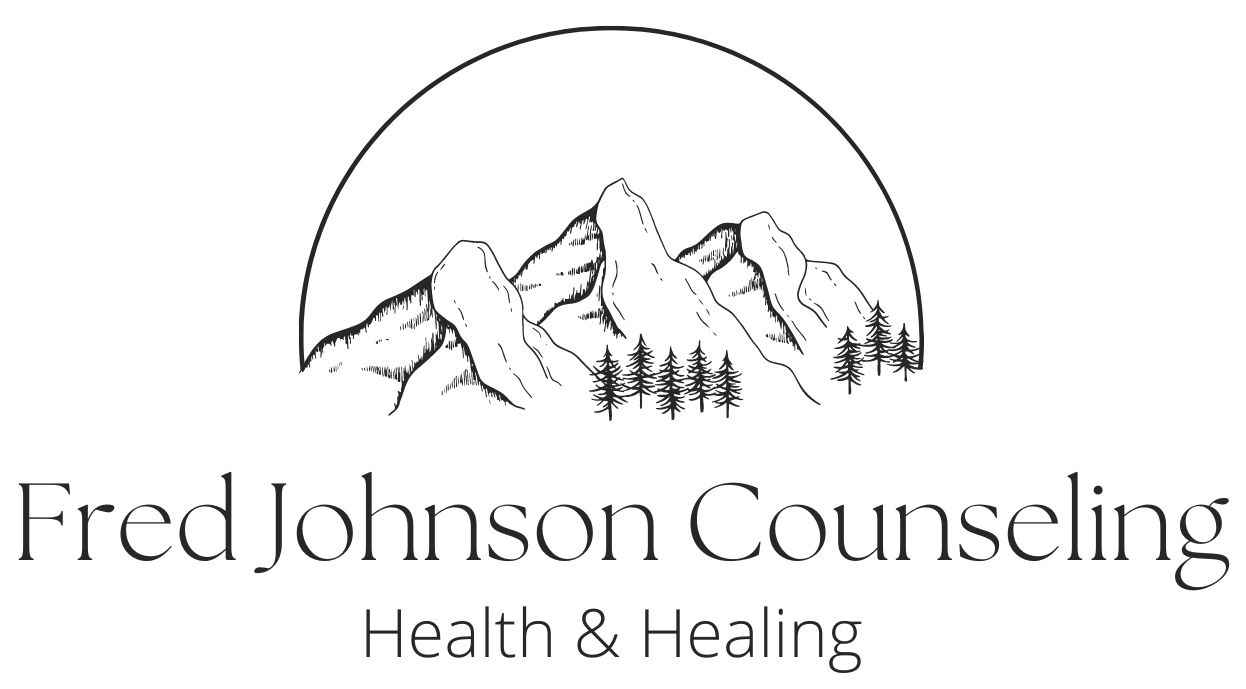Blog

Most of us don’t want to admit it, but the arrival of October signals the official start to the holiday season. Within the next 91 days, there will be everything from spooky lanterns, stuffed turkeys, and sales catalogues arriving in the mail or inbox on the regular. Parties to attend, events to support, and special “once a year” gatherings will all demand our focus and presence. One thing is for certain, If you’re of adult age with even a mild case of responsibility, you will begin to experience what I call, “Holiday Time-Slippage.” Holiday Time-Slippage is the phenomenon wherein the busier and faster our lives become during the holidays, the less time we have to enjoy the holidays. In trying to do it all, we miss all that we do. Ok, I’ll admit I made that up. I even googled it to see if it was a thing. It’s not. Perhaps I just made it a thing, but more likely it is just a fun play on words that ends with this blog post. In either case, I think it’s important to be mindful of the changing of the seasons and what those signals for many. The 16th century produced a carol of Welsh origin we now know as “Deck the Halls.” Within the lyrics, the phrase “‘Tis the season” has become a popular connotation of the holidays in general. Sometimes we use it as a greeting, coping phrase, or in an excusing manner, because after all, “’Tis the season, right?” What we miss in doing so, is the instructive reply the original lyric provides: “… to be jolly.” To experience a cheerful and happy time. In talking with people daily about their lives, I am reminded that not everyone enters this season with the hope of joy and jolly nature. Life can be hard. Holidays can bring triggers, those sharp painful reminders. The holiday seasons can be an extremely isolating time for many. We need the care of each other in these times. We need connection. We need people in our life who will laugh and love, who will share a moment. Maybe you are the person able to provide that for another. Maybe you’re the person who needs that. If I can remind and encourage you today, that in all your seasons upcoming, allow time to simply be jolly.

Each year, on the first day of August, I remind myself that we are closer to the end of the month than ever before. Each day after, as sweltering humid heat swarms us here in the south, I am reminded that it is now one day closer to the sweet relief of fall temperatures. I’m not sure how I would fair, if by chance, I believed the rampant heat waves of August would never leave. Thankfully, I know seasons come and seasons go. The dreaded drudgery of a hellacious August will soon be gone. The expounding beauty of fall, with leaves changing and cool breezes blowing, will soon arrive. Admittedly, this confession of seasonal distaste is a bit melodramatic. Yet, it serves as a practical example of what is known as “tolerable” stress and an adaptive coping response. Types of stress vary, but the three main categories are “good/positive”, “tolerable”, and “toxic” (1). These categories are not concrete or strictly defined by rules and circumstance necessarily. What is “good” stress for one person, may be “toxic” for another. Throughout our lives, the same stressors can change categories multiple times. Stress levels depend on the degree to which a person perceives control over a stressor or situation and whether they have support systems or resources in place to handle the stressor over their lifespan (2). A flat tire one day may be nothing other than a slight inconvenience. Yet on another day, it may represent all the uncontrollable forces keeping you from arriving on time to an important job interview. An easier way of saying all of this is, when we lose our sense of being (ability to control or make decisions) to a circumstance, we are a susceptible to toxic stress. This is where endurance comes in. I would love to say there is short and simple method to reduce and mitigate all toxic stress in our lives. Unfortunately, this just isn’t so. It doesn’t need to be. Because life, people, the world we live in, are all super complicated. What is important and hopeful: the effects of chronic/toxic stress in the brain and body are responsive to recovery and healing. Let’s talk about endurance as a helper for stress. Endurance, or the ability to withstand hardship or adversity, can be a simple, but effective tool to transition from toxic stress to tolerable stress. Enduring is a mindset of “thriving despite”. Thriving despite the terrible. Living beyond the hurt or difficulty. Healing to be able to accept good again. The difference in the stress types is significant. Remember that our perception plays a major role in which is which. Positive/good stress: normal life challenges such as receiving a promotion, learning a new skill, exercise, or having a child. Here we are allowed goals, enjoy success, and try new things. Choice remains in these. Tolerable stress is usually non-normative. Examples are loss of a loved one, serious illness, or natural disasters. There is a sense of unfairness in this. Often the choice to feel good is removed or feels wrong to do so. Our choice is questioned here. Toxic stress is typical adverse and inappropriate. Over time it can carry heavy physical and psychological consequences. All of life is darkened by this. Seeing good is tinted by what we have been through or currently in. We usually feel there is no choice in these. Abuse, intimate partner violence, Determining in our mind, to endure, withstand, and survive a critically difficult situation can move us from toxic stress to the tolerable type, then eventually the good type of stress. Living to allow good again. If ever there was a sentence that embodied the old phrase, “easier said than done” ---- that one was it. Tragically, it seems toxic stress only makes us good at surviving trauma or the terrible. It limits our ability to enjoy or even to see the beauty in a moment. The healing process allows us to be more human than before toxic stress skewed our view of the world. Talking with a counselor can be a critical part of healing. I hope that perhaps today in reading this, you’ve found a tool to help enduring despite what you’re up against. Notes: 1. https://center.uoregon.edu/StartingStrong/uploads/STARTINGSTRONG2016/HANDOUTS/KEY_49962/TypesofStress.pdf 2. https://www.ncbi.nlm.nih.gov/pmc/articles/PMC2864527/

I am a fan of positive imagination. Take a moment to consider this: How much time and effort do you spend in negative imagination (aka: anxiety) vs conceptualizing, visualizing, or simply imagining a positive outcome from the stressors or challenges in your life? Let’s discuss ways to build better thinking habits that contribute to our wellbeing. Developmentally, we are expected and encouraged to imagine things from an early age. It comes naturally. No one thinks of it as a bad sign of development or neurotic behavior. My favorite quote on this is by Albert Einstein: “The true sign of intelligence is not knowledge, but imagination.” He wasn’t wrong either. There have been many studies on the role of imagination in development and as predictor of cognitive abilities or even future success in children as adults. One thing I’ve noticed in these types of studies is: imagination almost always shows positive results! I can’t remember reading a study where imaginative play amongst kids indicates poor development or long-term problematic outcomes. Imaginative thinking helps us go beyond the present problem’s possibilities and explore the endless resolutions not currently apparent. Doing so encourages helpful and positive emotional affect. Yet, in the developmental years, it is not long before we as teenagers and young adults begin to hear things like, “Get your head out of the clouds” or “Stop pretending” or even “Think seriously for a minute.” Whether we want to admit it or not, most adults have transitioned from positive imaginative thinking to a form of negative imaginative thinking called, anxiety. Anxiety is truly the imagination predicting things and playing out the outcome of those bad things. So I return to my original question: How much time do you spend imagining the worst outcomes or negative situations verses a positive and hopeful future? If the answer is weighted more towards negative, let me give you some tools to try to help your thinking habits. 1. Split the Difference. Anytime you catch yourself thinking through how something will turn out badly, stop and begin imagining an opposite, positive resolution. Even if at first, the possibility you’ve imagined seems fantastical, continue on for equal effort and time. Try to at first spend at least 50/50 on negative vs positive imagination. You will find quickly that if you have trouble imagining the positive, it will take more time away from anxiety. 2. Find New Solutions. How often do you attempt to solve the same old problems and stressors with the same old solutions? Many times we do insanity by not stepping out of our grounded way of thinking. The next time you run into a problem you’ve been in before, try stopping and using your imagination for 5 minutes. Perhaps this will feel silly at first, but there’s a good chance your own brain, uninhibited by normal expectations, can create a new approach! 3. Read Fiction Books Reading, especially fiction, can stretch our imagination and even reintroduce us to the habit of thought. I will admit that I read a lot of non-fiction material and every so often need to stop and just read for fun! Aside from activating our imagination, reading can also free our mind from the present problem, which can bring new insights. 4. Visualize If “thinking” is your typical way of dealing with things, might I suggest you try a new approach? Create a flow chart, draw a picture that represents your situation, use colors, or even just simply doodle to introduce imagination and possibly better organize solutions. I hope in reading this, you’ve been inspired to try a new way of dealing with problems! At the very least, challenged to reduce how often you practice imagining the worst outcomes. Either way, take a moment today to imagine what good may happen!

June is a transition month here in Tennessee. We go from beautiful spring weather with its own quirks and unpredictability, to the full heat and humidity of summer. In doing so, we also move from the first half of the year to the second half. This is a big change as it seems each year the time it takes to get from January to July grows progressively shorter. Changes in life can be hard. To be transparent, adjusting to the weather changing is about the easiest type of change we must deal with. Transitioning from one stage of life or adjusting to sudden loss, disappointment, new or possibly self-inflicted stressors are typically more challenging. If you find yourself in the middle of change and struggling to adjust, the tool Radical Acceptance might be of help to you! Radical acceptance is a distress tolerance skill from Dialectical Behavioral therapy. Radical acceptance is intended to enable us to prevent the momentary pain we might be in, from becoming permeant suffering. My favorite way of framing this concept is, “To accept reality for what it is, while recognizing the need for change.” In other words, allowing ourselves to acknowledge, process, and feel the moment, while remaining aware and hopeful that we will be able to change at some point. What radical acceptance is not: approval or condoning. It is simply accepting by acknowledging what is. Here’s some examples of how this can sound in real life: Situation: You didn’t get the promotion you had hoped for. Normal response: “That is so unfair. I’ve worked harder than anyone and am way more dedicated.” Radical Acceptance: “I’m saddened that I didn’t get this promotion but accept that the found someone who they thought was more qualified. I will continue to do my best.” Situation: A loved one is diagnosed with a terminal illness. Normal response: “I can’t believe this. This shouldn’t be happening. They don’t deserve this.” Radical acceptance: “This is heartbreaking and I’m not sure how to handle it. I accept that life is going to have to look different.” This simple tool allows us to tolerate things that we might struggle to adjust to. It is very much a tool for being somewhere between where we wanted life to go and where it is heading. Allowing ourselves to acknowledge what is going on without resistance is freeing. If you are in the middle of something right now that is hard, feel free to try this tool to make the distress of that, more manageable. If you find that practicing this is helpful, but want more help in the situation you’re in, I encourage you to reach out to a mental health counselor today.

Arriving at a destination is usually the goal of any road trip. Rarely do we begin a vacation or even drive across town without a reason or a destination in mind. I would suggest that for most of us, we can easily fixate on destinations, accomplishments, or final outcomes. Whether it be a career milestone, personal fitness goals, or social status, we can be easily tempted to constantly look for check-points to know how close we are to our goal. Unlike a road trip or career trajectory, our mental health is not a destination or fixed point. It is certainly not something we arrive at and never have to deal with again. Mental health is a multifaceted and dynamic component of our being. Unlike a destination-driven-goal, we must learn to embrace our journey each day. To practice embracing our mental health journey, a daily activity is helpful. Here’s what I can recommend to effectively embrace the journey of mental health. 1. List 5 positive and affirming statements regarding your mental health. For example, “I am open to healing.” “I am capable of learning.” “It is ok to be well.” Or, “I am beginning my wellness again today.” 2. Each day, pick one of your statements and post on a mirror. Then look yourself in the eye, repeating the phrase for 3 minutes. Study the words, your expression, or the sound of your voice as you say this. 3. Reflect on the impact the positive self-talk had afterward on your mood. It's ok to keep a log of this. Rate it on a scale of 1-5 with 1 being no impact and 5 being great impact. This is a safe and effective way to begin seeing our own mental wellness as a journey and to embrace that as part of life. Rather than enabling feelings of inadequacy and defeat when we are not yet at a perfect destination of mental health, let's embrace the journey as it is. Try this out and who knows, you might prove Mr. Emerson correct that the journey was indeed the destination all along.

In our ever-increasingly-paced world, progress and victories in our mental health and wellbeing is often overlooked and minimized. Yet, our journey towards mental health wellness is one of personal measure. It is a journey marked by seasons of challenge, self-discovery, and an increasing inner strength. Taking a moment to celebrate our progress and growth is not only important, but also vital to continued growth. The greatest gift we may give ourselves in the pursuit of wellbeing, is the recognition and celebration of mental health growth. Here's some guiding ideas on how to celebrate mental health growth in yourself: Reflect on Your Progress : Take a moment to reflect on how far you've come. Consider the challenges you've faced and the obstacles you've overcome. Keeping a journal can be a helpful way to track your growth and reflect on your journey. Celebrate Milestones : Similar to celebrating a career milestone or achieving a personal fitness goal, celebrate your mental health milestones! Completing a therapy session, trying a new coping strategy, or simply getting through a difficult week, each step forward is worthy of recognition and celebration! Treat yourself to something special or engage in an activity that brings you joy to mark the occasion. Share Your Story : Sharing your journey of mental health growth can be empowering both for yourself and others. Usually this can help reduce stigma around mental health and provides a genuine connection between yourself and someone you trust. However you may choose to share your story, know that your voice has the power to inspire and uplift others. Practice Self-Compassion : Be gentle with yourself and recognize that healing is a nonlinear process. There will be ups and downs along the way, and it's okay to embrace both the triumphs and the setbacks as part of your journey. If it was easy, everyone would do it! It takes brave and resilient individuals to look inward with a willingness to grow. One of my favorite running coach phrases I’ve heard along the ways is, “It never gets easier, you just get better.” Life – health - mental wellness journeys, all are challenging and difficult. If you can learn to celebrate your growth and strength, you will get better. Be kind to yourself. Celebrate every percentile of growth you experience in your mental health. You’re the only one of you and that is special. .

With the beauty of spring flowers and new growth naturally occurring all around us, I thought I would share some insights on what is required for growth to occur inside of us! Like plants, we require certain things to grow as a person and to improve mental health. Unlike plants, we have certain powers and abilities to select, change, or seek out the conditions for growth. If you’ve been feeling stuck for a while in your mental wellness journey, read on for some helpful tips. Let’s start with the environment. For any plant to grow, it is partially reliant upon the conditions of the environment. Air and soil temps, moisture and humidity, the amount of direct and indirect sunlight, and even the presence of herbivores in the area all influence what growth will and won’t occur. In us humans, it is good to evaluate: Are we in a growth inducing environment? Do those around me desire good for me? Will other’s pour into my life if needed? Seeking environment that meets your needs can be a critical step in growth. Second, plants require energy from the sun to grow. The miraculous process of photosynthesis allows plans to draw energy from sunlight and convert that into food and resources. It would be nice if we possessed the photosynthesis process as we could all have lunch breaks on sunny days outside and fill up! We do however have the need of energy to grow. Energy can come from many places and interactions. I encourage people to take notice of anytime an activity or interaction leaves them feeling positively energized, rather than drained. Too often, we give and use energy on things that only absorb it from us. If you want to enhance your growth, seek out intentional activities that return your energy. Thirdly, nutrients from soil are required in nearly all plant life. Nutrients are the building blocks of life on earth. Humans are no exception. We need the resources and knowledge on how to handle the many varieties of life stressors thrown our way. What you take into your mind matters. Reading books, listening to podcasts, or talking with a trusted advisor or counselor can be critical nutrients to growth! Finally, water. In plants, water is very often the exact trigger for seed germination and growth. Water is the chemical you and I can’t live without and also can’t have too much of. Water in our life means balance and consistency. When we overindulge in anything, including water, there are risks. One way to initiate growth in our mental health is to find ways to balance in the thoughts or habits that are consuming you. Sometimes talking with a counselor is a great resource for gaining insights on what is delaying growth you seek!

At the time of posting this, it is the first day of April and here in middle Tennessee spring has fully begun! We have mild winters compared to many places in the world, but by the time spring finally rolls in, you’d think we middle Tennesseans had just escaped the arctic tundra! We welcome the budding trees and new-growth grasses. We endure the waves of pollen collecting on every imaginable surface everywhere. We recite at least once in the month of April the old proverb, “April showers bring May flowers.” I like to imagine we do this to instill the hope that our long suffering through tornado season and seasonal allergies will be rewarded with brighter days and beautiful flowers. There’s certainly nothing wrong with hope. I recommend it. The key is, in what or whom we place our hope. Hope in a brighter future is just one antidote for worry about it. Unfortunately, I think we all occasionally fall prey to the mounting pressures brought on by changes in our environment. The hope for May flowers can fail to comfort you when the showers of April coming your way include severe thunderstorms, tornados, or hail. These external stressors can certainly shake our internal peace or rob us of our mental health. A major factor that influences how much stress impacts us and our behavior is the location of what we perceive controls our life. This perception of the location of what controls our life events is called Locus of Control and was termed by Julian Rotters in 1954. He suggested that what we perceive as the underlying main cause(s) of the events in our lives determines a lot about how we respond to stress and challenges both now and in the future. He categorized two main location types: Internal and external. Here's a very basic summary of his brilliant model: to the extent you believe the location of control for your life lies within you (ex: your actions, attitudes, or decisions), or in external forces (Ex: fate, luck, or God), can have a major impact on your life. Everything from how you cope with stress, to deal with set-backs, or even decision making about your own future. It is important to note, most people fall somewhere between these two extremes. Externalizers is the term for those who feel like the cause or reason for their problem/discomfort/stress is outside of themself, originating from another person or situation. Internalizers believe they are responsible for they current situation and everything that happens is a consequence of their choices. As you can imagine, neither of these extremes is desirable. Here's an example: Event: An email arrives detailing an increased work load without increase in pay. Externalizer: "This isn't fair! I'm already stressed out and can barely keep up. They just want to drain every ounce of energy I have. Another nail in my coffin!" Internalizer: "Wow, I must be doing a great job! If I keep this up, they are going to promote me for sure. I've just got to keep it up. I can do it." Now if you read that and thought, "If only I was able to have that internalizer's attitude!" Let me warn you: for those that carry the responsibility of good and bad on their shoulders, failure becomes personal. A healthy balance of the two is suggested. No matter where you land on this spectrum of Locus of Control, let me give a helpful tip to encourage you to move more towards the middle. It is a simple phrase, credited to Viktor Frankl, "God determines what we go through. We determine how." You and I are certainly not in control of everything that happens to us in life. No one is able to be good enough all the time to prevent tough situations from happening. We must relinquish our impulse to demand control of it all, while also picking up the responsibility to navigate it. When you are facing unforeseen circumstances, remember this quote. Finding balance in who controls what in your life can be freeing.

